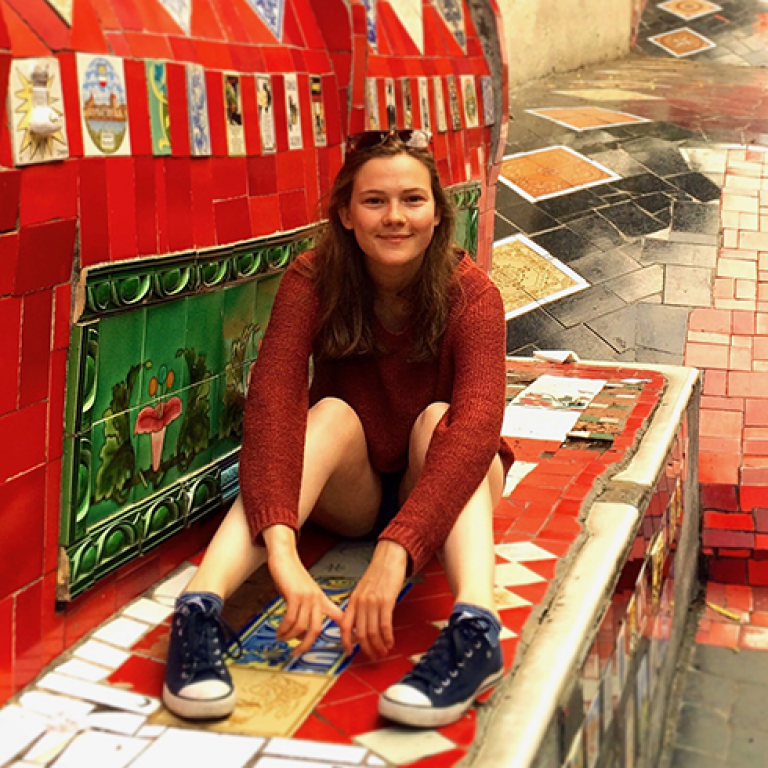Seven questions with Matilda Brindle
16 March 2017
This week, meet Matilda Brindle, a PhD student based in UCL Anthropology, who is researching the evolution of auto-sexual behaviours (masturbation) in primates.
 Matilda's current research project is focused on the evolution of the baculum, or penis bone, one of the
most enigmatic structures in the animal kingdom.
Matilda's current research project is focused on the evolution of the baculum, or penis bone, one of the
most enigmatic structures in the animal kingdom.
Research project: Evolution of the baculum
Department: Anthropology
Members of team: Matilda Brindle and Dr Kit Opie
Tell us more about your research project:
The baculum, or penis bone, is one of the most enigmatic structures in the animal kingdom. It is only present in mammals, and not all mammals at that. But up until now relatively little was known about how it evolved or why certain mammals might have one.
Our study used the latest phylogenetics
(statistical methods which allow you to model the evolution of a trait given
its pattern of descent) to reconstruct how the baculum evolved across mammals.
We then examined whether high levels of competition between males for females was likely to be one of the factors influencing baculum evolution in primates.
What we found was that the baculum first
evolved after marsupials split from placental mammals around 145 million years
ago (mya) but before the common ancestor of primates and carnivores evolved
around 95 mya.
In line with our predictions, we discovered that primate species where many males and females mate with one another (which leads to high levels of male-male competition) tended to have longer bacula than species in which females only mated with one male.
What makes it so important (and interesting)?
I think that anything that helps to piece
together the story of how the animal kingdom became so diverse is quite
exciting. We focused on the baculum
because it is interesting, in and of itself, and has been relatively
understudied. However, I feel that our
study also helps to demonstrate how useful and exciting phylogenetic methods
can be.
By modelling evolution based on
the traits of living species you can reconstruct how any trait evolved, be it
physical or behavioural, without needing to find something in the fossil
record. The baculum is a physical trait,
but fascinating studies have also examined the evolution of things like mating
systems or language, which obviously do not fossilise.
This is a hugely exciting tool, not just for evolutionary biologists, but for anyone interested in how life has evolved.
What has been a personal highlight so far?
For me, the highlights of the research were
the moments when we first saw the results of our analyses and realised, not
only that our hypotheses had been correct, but that we were the first people in
the world to have discovered what we did.
It's wonderful to be able to contribute to science in that way and add another small piece to the puzzle of how animals became the way they are today.
Explain some of the challenges involved in working on a research project.
You need to be so perseverant when
carrying out a research project as it throws up so many unexpected challenges,
from computer malfunctions to unexpected results.
Things can (and do) change or go wrong at every stage of your research, so it helps to be organised and try and work to a timetable, whilst remaining flexible enough to deal with any problems that may arise.
What advice would you give to an undergraduate student hoping to pursue a research career?
It may sound obvious, but all research
has to start somewhere - mine began by chance after a lecturer went on a slight
tangent and introduced the class to the peculiar bone that is the baculum.
After a quick online search it became
apparent that there were more questions than answers - so Kit and I decided to
research it ourselves.
So my advice would be: if you find a topic that interests you, explore it, and if you find a question that hasn't been answered, try and answer it yourself!
Any idea what's next after the project finishes?
I'll be getting started on my PhD in which I will be researching the evolution of auto-sexual behaviours (masturbation) in primates.
Describe your perfect evening (or weekend) after a long week.
Lazy mornings with good coffee and a leisurely breakfast, pub lunches with friends and long walks.
 Close
Close

